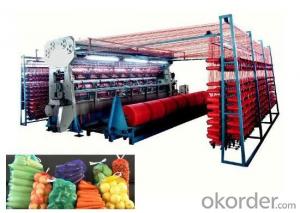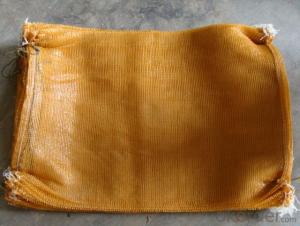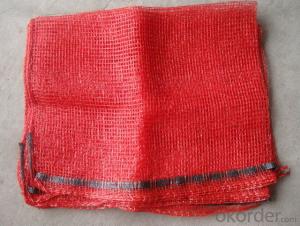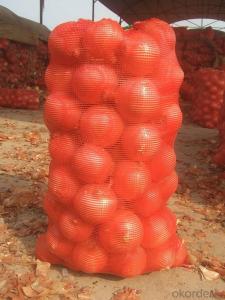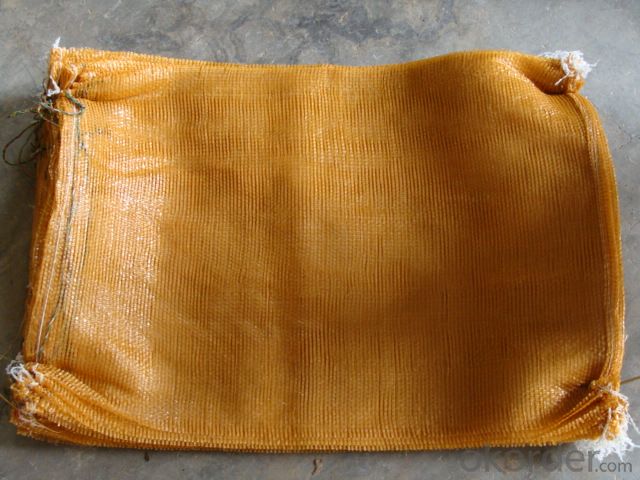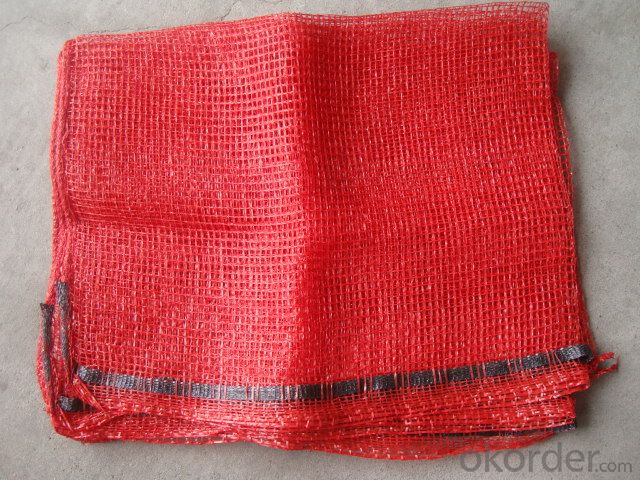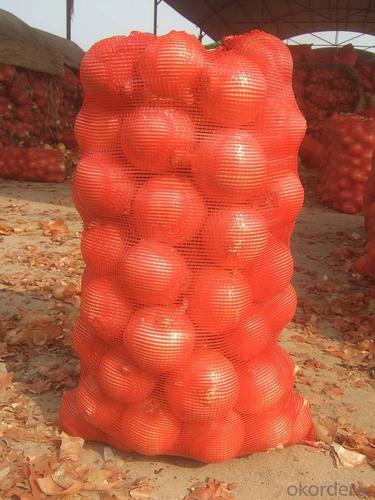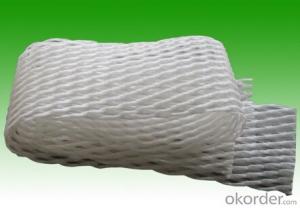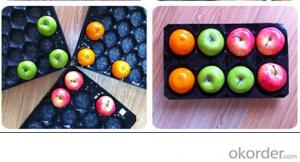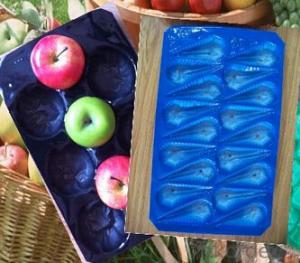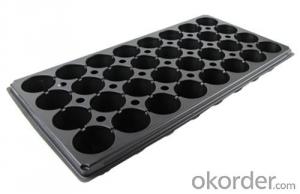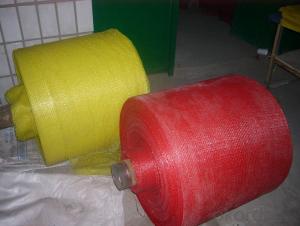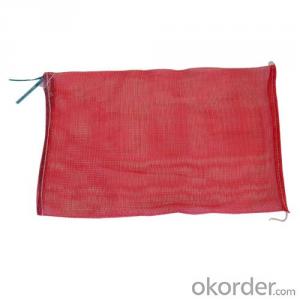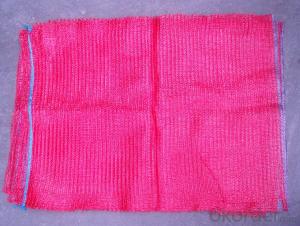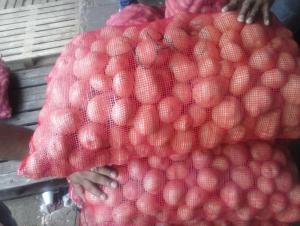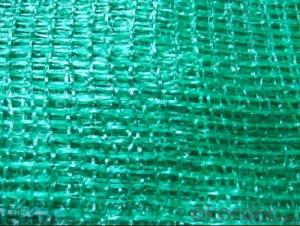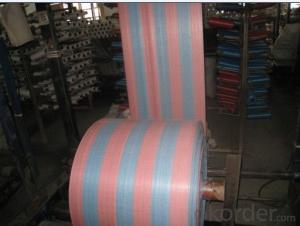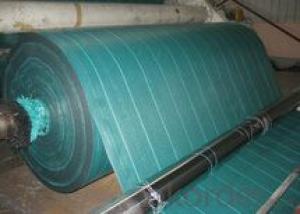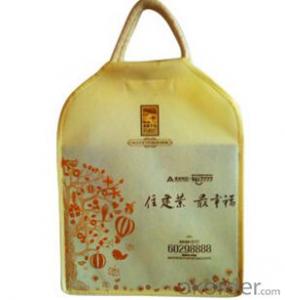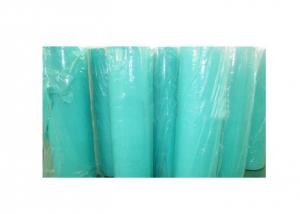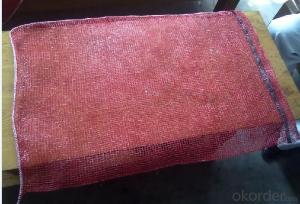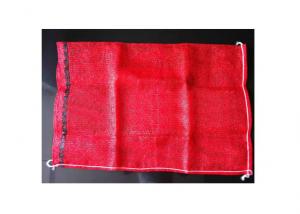Agricultural Vegetable Mesh Bag 40x60cm 25g
- Loading Port:
- Shanghai
- Payment Terms:
- TT OR LC
- Min Order Qty:
- 50000 m²
- Supply Capability:
- 500000 m²/month
OKorder Service Pledge
OKorder Financial Service
You Might Also Like
Product Name of Agricultural Vegetable Mesh Bag 40x60cm 25g:
PE Mesh Bag VIOLET
Loading Port: Shanghai port, China
Min.order quantity: 1*20GP
Supply Capability: 20*40HC per month
Payment Terms: TT or LC
Introduction of Agricultural Vegetable Mesh Bag 40x60cm 25g:
This products is made by HDPE (High-Density Polyethylene) or PP (Polypropylene), it is used for packing olive, onions, potatoes, and so on.
Specification of Agricultural Vegetable Mesh Bag 40x60cm 25g:
Material base fabric | Fabric Weight | Bag size |
HDPE (High-Density Polyethylene) or PP (Polypropylene) | 20g/m2—200g/m2 AS customer’s requirements. | 30x50cm, 40x60cm, 42x70cm, 50x80cm, 55x78cm, 55x85cm, 57x86cm, 60x90cm, etc. |
Width and length are as customers’ request.
Color: red, green, yellow, white, pink, orange, purple, as per your requirements
Top: Hemmed or locked, with drawstring or without, handle is available
Bottom: Single fold or double fold. Single stitch or double stitch
Printing: on one side or both sides, in one color or multi-colors
Application of Agricultural Vegetable Mesh Bag 40x60cm 25g:
It can be used packing onions, potatoes, apples, orange and other vegetables or fruits. It can hold heavy enough produces
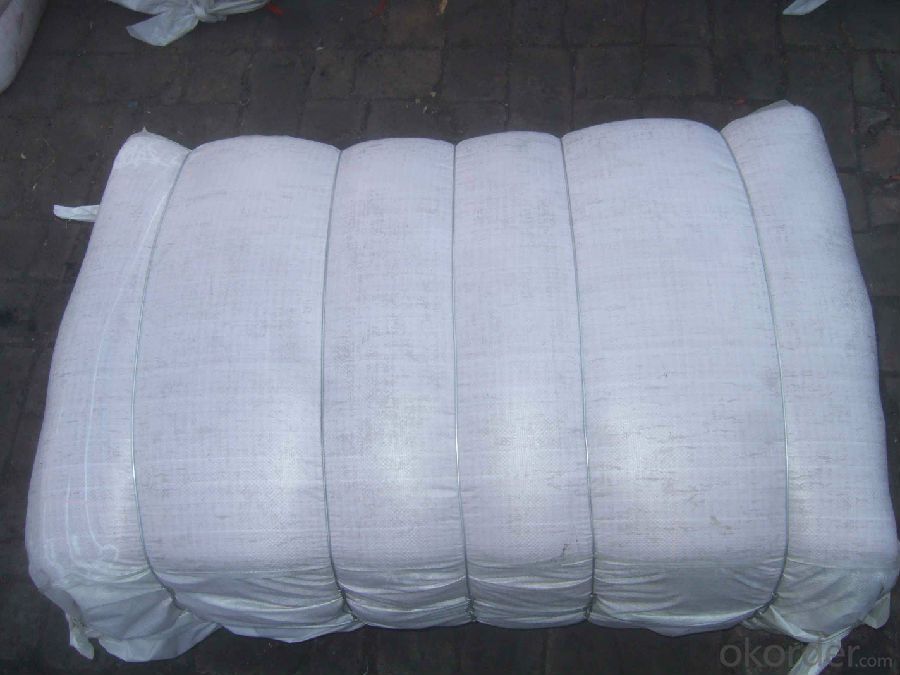
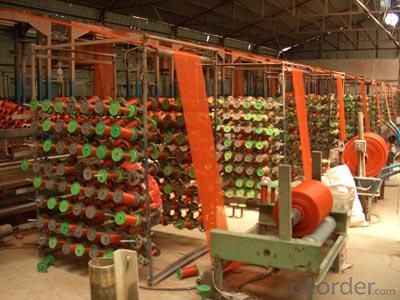
FAQ
Q: How to guarantee the quality of the products?
A:We have established the international advanced quality management system,every link from raw material to final product we have strict quality test;We resolutely put an end to unqualified products flowing into the market. At the same time, we will provide necessary follow-up service assurance.
Q: How long can we receive the product after purchase?
A:In the purchase of product within three working days, We will arrange the factory delivery as soon as possible. The pecific time of receiving is related to the state and position of customers.Commonly 30 to 35 working days can be served.
Q: HOW TO GET A SAMPLE?
A: FREE samples for Agricultural Vegetable Mesh Bag 40x60cm 25g are available for your checking and testing. And to get free samples, you need to send us you detailed receiving address (including post code) and your DHL/FedEx/UPS account for collecting samples, courier cost will be paid in your side.
- Q: What types of plastic sprayers are used for pesticide application?
- The types of plastic sprayers commonly used for pesticide application include handheld trigger sprayers, compression sprayers, and backpack sprayers.
- Q: This question asks whether the use of plastic mulch in agriculture can help in reducing soil erosion and waterlogging.
- <p>Yes, agricultural plastic mulch can indeed reduce soil erosion and waterlogging. By covering the soil, plastic mulch minimizes direct contact between raindrops and the soil surface, which helps to prevent soil particles from being dislodged and washed away. This reduces the risk of soil erosion. Additionally, plastic mulch can improve soil structure and drainage, allowing excess water to evaporate more effectively, thus preventing waterlogging. However, it's important to note that the use of plastic mulch is a part of integrated soil management practices and should be used in conjunction with other measures to maintain soil health and productivity.</p>
- Q: What are the advantages of using plastic seedling tubes in forestry?
- Plastic seedling tubes offer several advantages in forestry. Firstly, they provide protection to young seedlings against harsh environmental conditions such as wind, frost, and intense sunlight, increasing their survival rates. Secondly, these tubes create a microclimate that promotes faster growth and development by trapping heat and moisture around the seedling. Additionally, plastic seedling tubes reduce competition from surrounding vegetation, allowing the seedling to establish roots without constraint. This method also prevents browsing by animals, safeguarding the seedling from damage. Finally, plastic seedling tubes are cost-effective and easy to install, making them a practical choice for large-scale reforestation projects.
- Q: I had plastic surgery (chin lipo) it was uneven and had to redone, now its even worse and I have to have someone else fix it. Can I sue my plastic surgeon? Should I demand a partial return on what I paid first and then sue?
- If you demand a partial refund, I think they may consider that as a settlement if you decide to sue...I wouldn't recommend it, but then again, I'm no lawyer. And if the service wasn't done properly, and you have the proof you had to get it fixed, I don't see why you can't sue. I just hope you don't go overboard...get the money it costs to get it redone and a little pain and suffering...that's what I would do at least.
- Q: How do nursery trays help in reducing the risk of transplant shock in fragile plant species?
- Nursery trays help in reducing the risk of transplant shock in fragile plant species by providing a controlled and protected environment for their initial growth. The trays allow for the proper development of root systems, protect the plants from external stressors, and make the transplantation process easier and less disruptive. This helps the fragile plants establish themselves more smoothly in their new environment, reducing the chances of transplant shock and increasing their chances of survival.
- Q: Can agricultural plastic products be used for crop storage?
- Yes, agricultural plastic products can be used for crop storage. They are commonly used to store and protect various agricultural products such as fruits, vegetables, grains, and seeds. Agricultural plastic products, such as silage bags, grain bags, and plastic bins, offer durability, moisture resistance, and protection against pests, thereby helping to preserve the quality and extend the shelf life of crops.
- Q: Can agricultural plastic products be used in greenhouse farming?
- Yes, agricultural plastic products can be used in greenhouse farming. These products, such as plastic mulch, greenhouse films, and drip irrigation systems, play a crucial role in enhancing crop production and protecting plants from adverse weather conditions. Plastic mulch helps control weeds, conserve moisture, and regulate soil temperature, while greenhouse films provide insulation, regulate light transmission, and protect crops from pests and diseases. Additionally, drip irrigation systems ensure efficient water management and nutrient delivery to plants, optimizing their growth in greenhouse farming.
- Q: What are the possible substitutes for agricultural plastic mulch?
- <p>Yes, there are several alternative materials that can be used instead of agricultural plastic mulch. These include biodegradable mulches such as paper, straw, and wood chips, which decompose naturally and enrich the soil. Organic mulches like compost or coco coir can also be used for their soil conditioning benefits. Additionally, some farmers use landscape fabric, which is a permeable fabric that allows water to pass through while suppressing weeds. Another alternative is to use mulches made from recycled materials, which can help reduce waste. It's important to consider the specific needs of the crop and the local environment when choosing an alternative to plastic mulch.</p>
- Q: Can ground cover plants be used to create a natural-looking lawn alternative?
- Yes, ground cover plants can be used to create a natural-looking lawn alternative. Ground cover plants such as clover, moss, or low-growing grasses can be used to cover the ground and create a lush and green landscape. These plants require less maintenance, water, and mowing compared to traditional lawns, making them a sustainable and attractive option for those seeking a more natural and eco-friendly lawn alternative.
- Q: What are the different colors of agricultural plastic and their purposes?
- There are various colors of agricultural plastic used for different purposes. Black plastic is commonly used for mulching to control weeds, retain soil moisture, and increase soil temperature. White plastic is used for reflective purposes, helping to repel insects and reduce heat buildup. Clear plastic is used for greenhouse structures, allowing maximum sunlight penetration. Additionally, red, blue, and yellow plastic films are sometimes used for specific applications such as pest control or light manipulation for improved crop growth and yield.
Send your message to us
Agricultural Vegetable Mesh Bag 40x60cm 25g
- Loading Port:
- Shanghai
- Payment Terms:
- TT OR LC
- Min Order Qty:
- 50000 m²
- Supply Capability:
- 500000 m²/month
OKorder Service Pledge
OKorder Financial Service
Similar products
Hot products
Hot Searches
Related keywords
